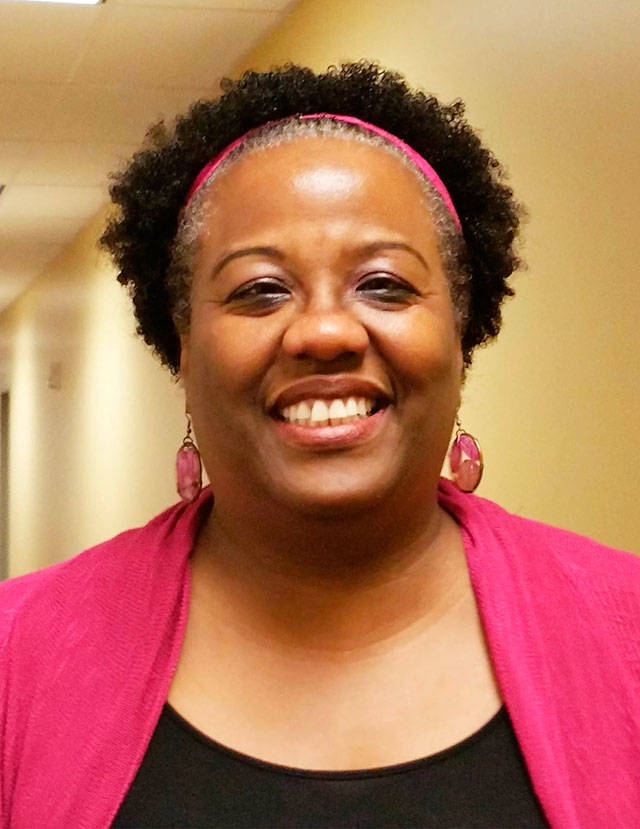College students from throughout the Pacific Northwest will have the chance to practice thwarting hackers during the annual Pacific Rim Collegiate Cyber Defense Competition on Friday, Saturday and Sunday at Highline College.
The event provides students with real-world challenges while maintaining a corporate network that cannot be replicated in a typical classroom. This type of competitive practice gives students better training and preparation for the workforce.
“The Internet of Things (IoT), more technology coming online and the sheer volume of what is out there is creating a smorgasbord for criminals to pick from. Companies need employees who understand how to deal with network intrusions and cyberattacks,” said Dr. Amelia Phillips, Highline Computer Information Systems faculty member and the regional director of the event.
Teams from 14 colleges and universities are scheduled to participate in the 10th annual competition:
Central Washington University
Clover Park Technical College (Lakewood)
Columbia Basin College (Pasco)
Green River College (Auburn)
Lewis and Clark College (Portland, Ore.)
Linfield College (McMinnville, Ore.)
Peninsula College (Port Angeles)
Spokane Falls Community College
The Evergreen State College (Olympia)
University of Idaho (Moscow, Idaho)
University of Washington, Seattle
University of Washington, Tacoma
Western Washington University (Bellingham)
Whatcom Community College (Bellingham)
Each team consists of between six and eight students with a cap of two graduate students on each team. Students from at least two high schools will be on hand to participate in the National Initiative for Cyber Security Education (NICE) Challenge Project and observe the competition with the hope that the students will be inspired to pursue cybersecurity as a profession.
“During the competition, students may be dealing with unexpected events, people being laid off, installation of a new server or other challenges while being under attack by professional hackers – also known as penetration testers,” Phillips said. The hackers will be trained professionals from government agencies, National Guard, Navy’s Space and Naval Warfare Systems Command and local industry.
Open to two- and four-year colleges and universities in Washington, Oregon and Idaho, the Pacific Rim Competition serves as the regional competition for the National Collegiate Cyber Defense Competition. The Pacific Rim region boasts national status with the University of Washington (Seattle campus) winning the regional and national competitions in 2011 and 2012. Columbia Basin College won the Pacific Rim Competition in 2016. This year’s national championship is scheduled for April 13-15 in San Antonio, Texas.
This is Highline’s eighth year hosting the regional event. Using the computer labs on Highline’s campus, the students in the competition will need to maintain a company network while they are being attacked.
For the second year in a row, Highline students, with support from the college’s Information Technology Services staff, have designed the company network — complete with intentional security flaws – that will be used during the competition. These students are enrolled in the college’s applied bachelor’s degree program in Cybersecurity and Forensics and several applied associate degree programs: Network Security Engineer, Digital Forensics and Web/Database Developer.
Competitors will need to secure the operating systems, email servers, websites and other parts of a business network. They must also update their websites, create new user accounts and perform other standard business activities while delivering excellent customer service to irate customers who call in.
The primary objective of the competition is to provide students with real-world challenges. The second objective is to give potential employers – the sponsors – a chance to observe students under pressure. As part of the competition, breakfast and dinner events will be held to allow students to do short interviews with the sponsors and allow sponsors to talk to those students they may be interested in hiring. Sponsors include Amazon Web Services (AWS), Boeing, Cobalt Strike, CyberWatch West, Microsoft, National Security Agency (NSA), Raytheon, SpaWar and U.S. Department of Homeland Security.


